- Aspect Ratio: 1.66:1
- Video Codec: AVC/MPEG-4
- Resolution: 1080p/24
- Audio Codec: English DTS-HD Master Audio 2.0 Stereo
- Subtitles: English
- Rating: R
- Region: A
- Discs: 1
- Studio: Criterion Collection
- Blu-ray Release Date: January 31, 2011
- List Price: $39.95
[amazon-product align=”right”]B004CGUC10[/amazon-product]
Purchase The Double Life of Véronique [Criterion Collection] on Blu-ray at CD Universe
Shop for more Blu-ray titles at Amazon.com
Overall
[Rating:4/5]
The Film
[Rating:4.5/5]
Video Quality
[Rating:5/5]
Audio Quality
[Rating:4/5]
Supplemental Materials
[Rating:4/5]
Click thumbnails for high-resolution 1920X1080p screen captures
(Screen captures are lightly compressed with lossy JPEG thus are meant as a general representation of the content and do not fully reveal the capabilities of the Blu-ray format)
Editor’s Note: Portions of this review were previously published in our The Double Life of Véronique [UK Release] Blu-ray Review.
The Film
[Rating:4.5/5]
The late Krzysztof Kieślowski’s (Three Colors Trilogy) The Double Life of Véronique was the Polish director’s 1991 international breakthrough, earning its star, Irène Jacob, the award for Best Actress at Cannes as well as instant critical praise for Kieślowski. Its story is almost opaquely perplexing, yet the film’s beauty, precipitated by the ethereal cinematography of longtime collaborator Sławomir Idziak and a haunting operatic score by Zbigniew Preisner, is a marvel to watch.
The film is set in two parts, the first being in Poland and the second in France, and the protagonists, both played by Jacob, are Weronika and Véronique. They are doppelgangers, living separate, but eerily similar lives. Weronika is a choir singer, Véronique a music teacher. The two are perhaps aware of each other on an emotional level, but they never meet, they only almost cross paths as Weronika spies her look alike through a bus window shortly before the film switches halves. Véronique, somehow sensing that all has gone wrong in the life of her double changes direction in her own life, making different choices and shifts into a period of self-examination.
Using color, shapes, shadows, reflections, and beautiful music, The Double Life of Véronique is a soulful blend of fantasy and introspective drama that is heavily reliant on its star, Jacob, to carry it through. From its opening scenes, the camera is intent to focus on her as we see Weronika singing in the rain. Jacob, perfectly able to shoulder the load, puts on a performance perhaps only rivaled by her eventual turn in The Three Colors Trilogy: “Blue.”
This is haunting, riveting, and complex all at once. It is beautiful to watch and fascinating to try to interpret.
Video Quality
[Rating:5/5]
This high definition digital transfer was created on a Spirit Datacine in 2K resolution from the original 35mm negative. Thousands of instances of dirt, debris, scratches, splices, warps, jitter, and flicker were manually removed using MTI’s DRS system, while Digital Vision’s DVNR system was used for small dirt, grain, and noise reduction.
Whereas the UK Blu-ray release of The Double Life of Veronique from Artificial Eye looked a little bit soft and diffuse to my eyes, although still quite strong, this AVC/MPEG-4 encoding from the Criterion Collection seems to have a bit more high frequency information retained. There is a more definite film grain structure, sharper detail, and a more film-like, theatrical appearance.
Audio Quality
[Rating:4/5]
The stereo soundtrack was remastered at 24-bit from the 35mm magnetic tracks. Clicks, thumps, hiss, and hum were manually removed using Pro Tools HD. Crackle was attenuated using AudioCube’s integrated audio workstation.
Unlike the UK release which featured a Polish/French DTS-HD Master Audio 5.1 soundtrack where the additional surround channels didn’t add much of a benefit, Criterion sticks to a stereo mix, also in DTS-HD Master Audio. With that being said, there is a good spread of sound across the front channels, particularly during times when the excellent score from Zbigniew Preisner is brought to the fore and during the scene in which Veronique is listening to sound effects through her headphones. Dialogue is clear and dynamic range is wide, and high frequencies seem natural and easy on the ears.
Supplemental Materials
[Rating:4/5]
Documentaries, interviews and the added bonus of early short films from the director give the supplements of The Double Life of Véronique a lot of replay value. As per usual, the excellent booklet included with the Criterion release also boosts the value of this release.
The supplements provided with this release are:
- Audio commentary recorded exclusively for the Criterion Collection in 2006 by Annette Insdorf, author of Double Lives, Second Chances: The Cinema of Krzysztof Kieślowski.
- U.S. Ending (1.33:1; 1080i/60; 0:05.17) – At the urging of Miramax head Harvey Weinstein, director Krzysztof Kieślowski changed the ending of The Double Life of Véronique for its U.S. Release.
- Short Films – Krzysztof Kieślowski began his career making documentaries. Presented here are three of his nonfiction shorts, as well as The Musicians, by Kazimierz Karabasz. Karabasz was a teacher at the Lodz Film School, where Kieślowski studied, and a great influence on the young filmmaker.:
- The Musicians (1958) (1.33:1; 1080i/60; 0:10.35)
- Factory (1970) (1.33:1; 1080i/60; 0:18.10)
- Hospital (1976) (1.33:1; 1080i/60; 0:21.22)
- Railway Station (1980) (1.33:1; 1080i/60; 0:13.16)
- Kieślowski – Dialogue (1.33:1; 1080i/60; 0:52.43) – This 1991 documentary on the making of The Double Life of Veronique features an interview with Krzysztof Kieślowski and rare behind-the-scenes footage of the director at work.
- 1966 – 1988: Kieślowski, Polish filmmaker (1.78:1; 1080i/60; 0:30.39) – This 2005 documentary, produced by MK2 and directed by Luc Lagier, examines Krzysztof Kieślowski’s work in Poland, focusing on the political and artistic conditions in which his career developed.
- Sławomir Idziak (1.78:1; 1080i/60; 0:24.18) – Cinematographer Sławomir Idziak first worked with Krzysztof Kieślowski on one of the director’s earliest films, Pedestrian Subway (1973). Idziak went on to shoot several more films with Kieślowski, including The Double Life of Veronique and Blue (1993), and has more than fifty feature films to his name, among them Black Hawk Down (2001), for which he received an Academy Award nomination. This exclusive interview was conducted in 2006.
- Zbigniew Preisner (1.78:1; 1080i/60; 0:21.16) – Zbigniew Preisner, Poland’s leading composer, enjoyed a long collaboration with Krzysztof Kieślowski, scoring every one of his films beginning with 1985’s No End. In 1998, he released an album dedicated to the director, entitled Requiem for My Friend. This exclusive interview was conducted at the composer’s home in Krakow in July 2006.
- Irène Jacob (1.78:1; 1080i/60; 0:16.44) – Irène Jacob was virtually unknown when she starred in The Double Life of Veronique, for which she won the best actress award at the Cannes Film Festival. She has gone on to work for a variety of European and American directors, appearing in such films as Othello and The Secret Garden. She collaborated with Krzysztof Kieślowski again on his 1994 film Red. In this 2005 interview, Jacob discusses working with the director on The Double Life of Veronique.
- Booklet: Featuring an essay by critic Jonathan Romney and excerpts from Kieślowski on Kieślowski, plus information on the transfer and film credits.
The Definitive Word
Overall:
[Rating:4/5]
The Double Life of Véronique is one of the classics of the latter-day European cinema. Upon its release it instantly moved onto the list of all time greatest films ever produced, and deservedly so. It is spellbinding to watch and it has been rendered to high definition on Blu-ray in a reference quality, high-value release from The Criterion Collection.
Additional Screen Captures:
[amazon-product align=”right”]B004CGUC10[/amazon-product]
Purchase The Double Life of Véronique [Criterion Collection] on Blu-ray at CD Universe
Shop for more Blu-ray titles at Amazon.com
Overall
[Rating:4/5]
The Film
[Rating:4.5/5]
Video Quality
[Rating:5/5]
Audio Quality
[Rating:4/5]
Supplemental Materials
[Rating:4/5]


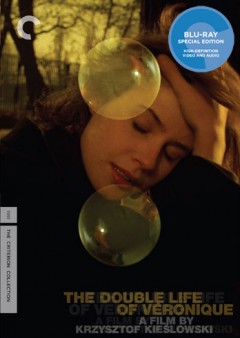


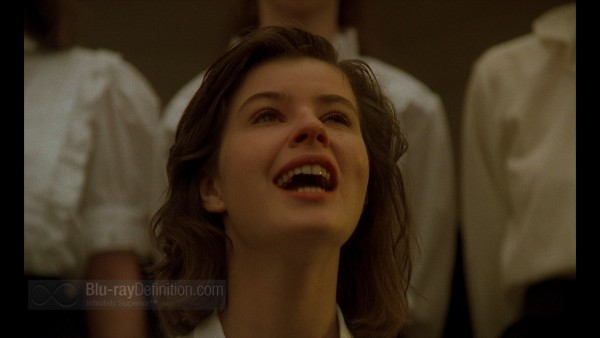
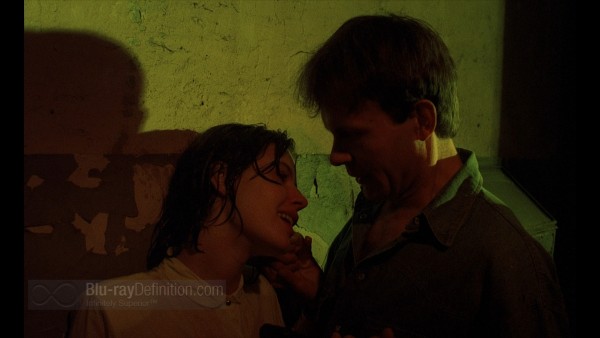
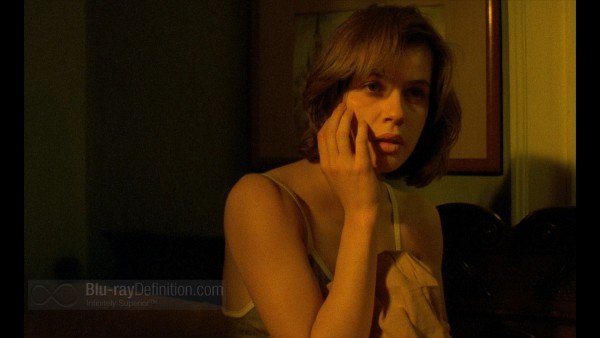
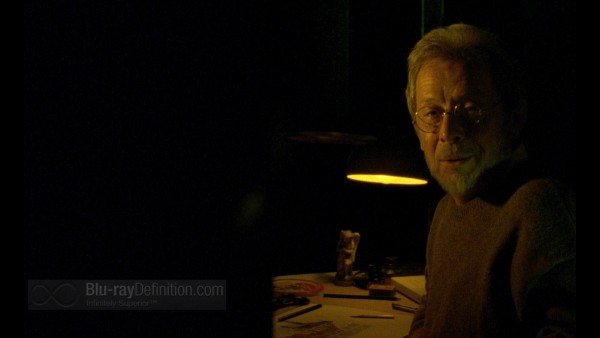
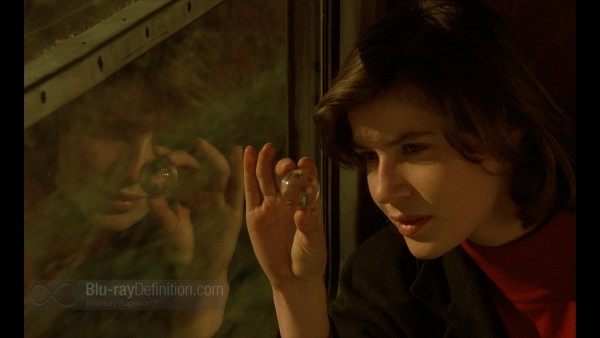
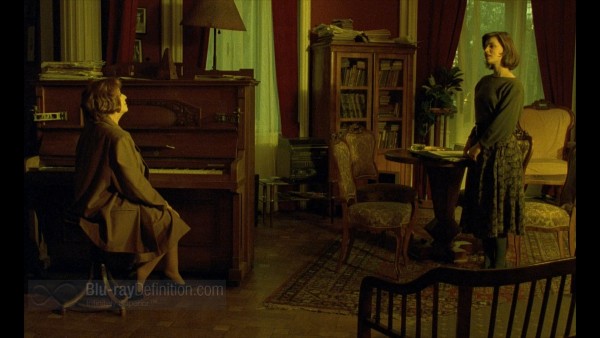
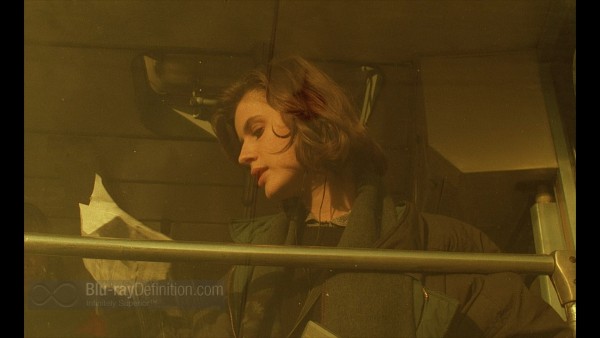
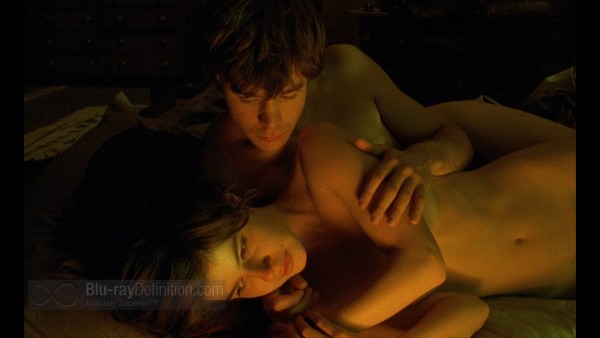
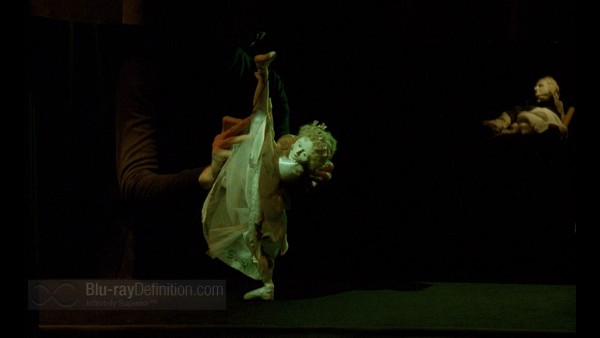



Hey Brandon,
Thanks for your review here. One of my all-time favorite films. It seems many folks don’t see much of a difference between the AE Blu-ray release and the Criterion. However, like you, I find the Criterion to be sharper with deeper blacks, more grain and, all around, more film-like. I’ve viewed both side-by-side and the Criterion is, simply, more pleasing to my eye and more keeping in sync with my memory of the film projected. Several other reviewers have commented that Criterion exhibits not more grain, but more noise (see here: http://forum.blu-ray.com/blu-ray-movies-north-america/87316-criterion-collection-discussion-1272.html – scroll down to read pro-bassoonist’s comments. He wrote the initial review for Blu-ray.com). I do not find that to be the case (though both transfers do seem to have slight noise in the darkest scenes).
I was happy to read a review by someone who had the same experience as I did comparing the two. Means I’ll be returning to read more of your reviews in the future. Keep up the good work.
Hal
Hi Hal,
Thanks for the kind words. :-) I’m glad you like the review. Both AE and Criterion versions are strong, but I, like you, favor the Criterion. It just looks a bit sharper to my eyes, but you may be right about the noise in dark areas.